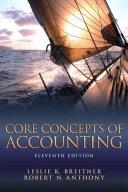Question
1) If there is a controlling account, there is probably a subsidiary ledger. TRUE /FALSE 2) If the terms of sale are 1/10, n/30, the
1) If there is a controlling account, there is probably a subsidiary ledger. TRUE /FALSE
2) If the terms of sale are 1/10, n/30, the buyer has ten days after the date of the invoice to take advantage of the cash discount.TRUE /FALSE
3)Land is not subject to depreciation.TRUE /FALSE
4)Withdrawals are considered as expenses of the business.TRUE /FALSE
5)Owner's equity generally means total assets of a company. TRUE /FALSE
6) An annual accounting period is called a fiscal year. TRUE /FALSE
7) Entries required to clear the balances of the temporary accounts at the end of the year are called closing entries. TRUE /FALSE
8) Net pay less one or more deductions equals gross pay. TRUE /FALSE
9) There is a ceiling on the total earnings for each employee that are subject to federal income tax. TRUE /FALSE
10) Employees' individual earnings records are not needed for salaried employees. TRUE /FALSE
11) On a bank statement, an NSF check is frequently listed as a debit memorandum. TRUE /FALSE
12) A credit memorandum on a bank statement indicates an addition to the bank balance.TRUE /FALSE
13) Each petty cash payment is recorded separately in the journal. TRUE /FALSE
14)When the petty cash fund is reimbursed, the Petty Cash account is debited for the amount paid out of the fund. TRUE /FALSE
15) FOB Destination means that the buyer has the title to the merchandise and pays for the freight charges. TRUE /FALSE
Table 1: The accounts and their balances as of Dec. 31 of this year for MMD Company are:Accounts Payable = $32,400; Accounts Receivable = 4,200; Advertising Expense = $960; Cash = $11,100; Equipment = $51,000; Income from services = $19,200; Insurance Expense = $480; Owner's Capital = $33,480; Owner, Drawing = $4,800; Rent Expense= $2,850; Supplies = $3,120; Utilities Expense = $1,770; Wages Expense = $4,800.
16) Using Table 1, the amount of the Total Liabilities is ______________.
17) Using Table 1, the amount of Net Income is _____________.
18) Using Table 1, the amount of Total Owner's Equity as of Dec. 31 is ______________.
19) A business company purchased Land for investment on account. What will be the effect of this transaction on the accounts?
Debit a liability account and credit an asset account
Debit an asset account and credit an expense account
Debit an expense account and credit an asset account
Debit an asset account and credit a liability account
Debit an asset account and credit a revenue account
20) A company had purchases of inventory for $96,000. Purchases Returns and Allowances were $2,000 and Freight In was $4,000. If the beginning inventory was $50,000 and the ending inventory was $40,000, the cost of merchandise sold is
$108,000
$88,000
$128,000
$112,000
None of the above
21) A business company purchased an office equipment on Jan. 1 of this year for $3,800. The equipment is estimated to have a useful life of 8 yrs. and a trade-in value of $200 at the end of its life. Using the straight-line method, the amount of depreciation expense for the first year is:
$500
$450
$475
$400
none of the above
22) If an accountant fails to make an adjusting entry at the end of the accounting period to record expired insurance, the omission will cause
total revenue to be understated
total expenses to be understated
total assets to be understated
total liabilities to be understated
none of the above
23) Which of the following items is not listed on the bank reconciliation?
Outstanding Checks
Deposits in Transit
Petty Cash Fund
NSF Checks
Bank service charge
24) A withdrawal of cash by the owner may be considered
an increase in a liability and a decrease in Cash
an increase in an expense and a decrease in Cash
a decrease in owner's equity and a decrease in Cash
a decrease in liability and a decrease in Cash
none of the above
25) A purchase of supplies on account should be recorded as
An increase in Supplies and an increase in Cash
An increase in Liabilities and a decrease in Supplies
An increase in Supplies and a decrease in Liabilities
An increase in Cash and a decrease in Supplies
An increase in Supplies and an increase in Liabilities
Step by Step Solution
There are 3 Steps involved in it
Step: 1

Get Instant Access to Expert-Tailored Solutions
See step-by-step solutions with expert insights and AI powered tools for academic success
Step: 2

Step: 3

Ace Your Homework with AI
Get the answers you need in no time with our AI-driven, step-by-step assistance
Get Started


